Resources

"Graff offers a highly readable and down-to-earth perspective on some of the most ballyhooed issues in higher education today. . . . By encouraging us to argue together, he may yet help us to reason together."—Henry Louis Gates, Jr. Higher education should by a battleground of ideas: the real problem, Gerald Graff says, is that students are not getting more out of the battle. In this lively book, Graff argues that the "culture wars" now being fought over multiculturalism and political correctness are actually a sign of the intellectual vitality of American education—but they need to be used creatively, made part of the educational process itself. (From the Publisher)
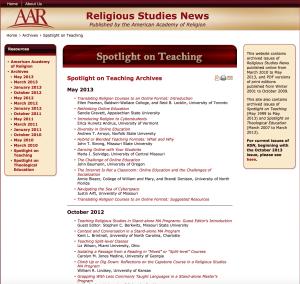
Journal Issue. Full text is available online.
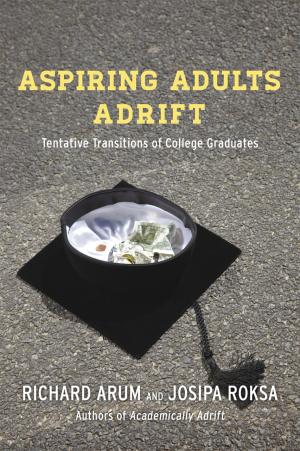
Click Here for Book Review Abstract: Few books have ever made their presence felt on college campuses—and newspaper opinion pages—as quickly and thoroughly as Richard Arum and Josipa Roksa’s 2011 landmark study of undergraduates’ learning, socialization, and study habits, Academically Adrift: Limited Learning on College Campuses. From the moment it was published, one thing was clear: no university could afford to ignore its well-documented and disturbing findings about the failings of undergraduate education. Now Arum and Roksa are back, and their new book follows the same cohort of undergraduates through the rest of their college careers and out into the working world. Built on interviews and detailed surveys of almost a thousand recent college graduates from a diverse range of colleges and universities, Aspiring Adults Adrift reveals a generation facing a difficult transition to adulthood. Recent graduates report trouble finding decent jobs and developing stable romantic relationships, as well as assuming civic and financial responsibility—yet at the same time, they remain surprisingly hopeful and upbeat about their prospects. Analyzing these findings in light of students’ performance on standardized tests of general collegiate skills, selectivity of institutions attended, and choice of major, Arum and Roksa not only map out the current state of a generation too often adrift, but enable us to examine the relationship between college experiences and tentative transitions to adulthood. Sure to be widely discussed, Aspiring Adults Adrift will compel us once again to re-examine the aims, approaches, and achievements of higher education. (From the Publisher)
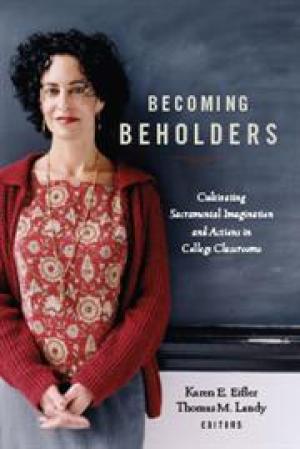
Click Here for Book Review Abstract: Catholic colleges and universities have long engaged in conversation about how to fulfill their mission in creative ways across the curriculum. The "sacramental vision" of Catholic higher education posits that God is made manifest in the study of all disciplines. Becoming Beholders is the first book to share pedagogical strategies about how to do that. Twenty faculty—from many religious backgrounds and teaching in fields as varied as chemistry, economics, English, history, mathematics, sociology, and theology—discuss ways that their teaching nourishes students' ability to find the transcendent in their studies. (From the Publisher)
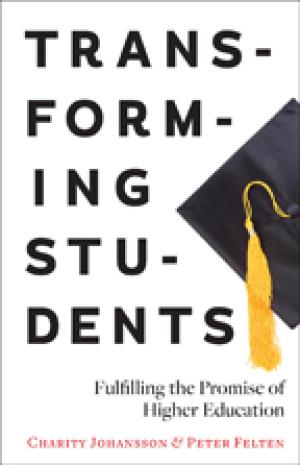
Click Here for Book Review Abstract: The recent trend of trying to measure higher education’s return on investment misses a fundamental point, argue Charity Johansson and Peter Felten. The central purpose of a college or university is to transform the lives of students—not to merely change them or help them mature. This transformation is an ongoing process of intentionally aligning one’s behavior with one’s core sense of personal identity. It is the university’s central role to lead students in this transformation, a process that shapes students into intentional, critical, and engaged individuals. Recognizing the remarkable influence of the college experience on peoples’ lives, the authors offer a guide to how colleges and universities can effectively lead students through this life-changing process. Drawn from extensive interviews with students and graduates, faculty and staff, Transforming Students gathers diverse stories to show how students experience the transformation process, which rarely follows a neat or linear path. The interviews illustrate central themes from the literature on transformative learning and the undergraduate student experience. A sequel of sorts to George Keller’s classic Transforming a College—which chronicled Elon University’s metamorphosis from struggling college to a top regional university— Transforming Students addresses the school’s core educational mission: to shape students into engaged adults who embrace learning as a lifelong endeavor. Given this effect, the college experience is much more than preparation for a career. It is preparation for life. (From the Publisher)
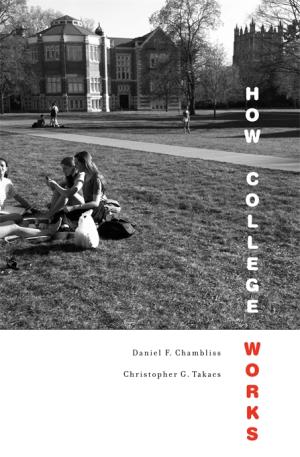
Click Here for Book Review Abstract: Constrained by shrinking budgets, can colleges do more to improve the quality of education? And can students get more out of college without paying higher tuition? Daniel Chambliss and Christopher Takacs conclude that the limited resources of colleges and students need not diminish the undergraduate experience. How College Works reveals the surprisingly decisive role that personal relationships play in determining a student’s collegiate success, and puts forward a set of small, inexpensive interventions that yield substantial improvements in educational outcomes. At a liberal arts college in New York, the authors followed a cluster of nearly one hundred students over a span of eight years. The curricular and technological innovations beloved by administrators mattered much less than the professors and peers whom students met, especially early on. At every turning point in students’ undergraduate lives, it was the people, not the programs, that proved critical. Great teachers were more important than the topics studied, and even a small number of good friendships—two or three—made a significant difference academically as well as socially. For most students, college works best when it provides the daily motivation to learn, not just access to information. Improving higher education means focusing on the quality of a student’s relationships with mentors and classmates, for when students form the right bonds, they make the most of their education. (From the Publisher)
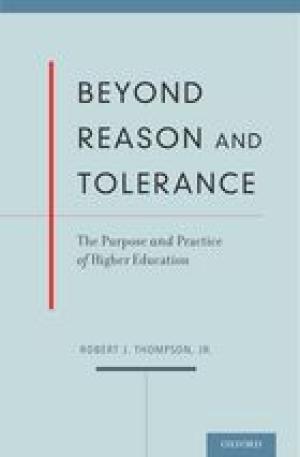
Click Here for Book Review Abstract: Provides a developmental science basis to inform necessary transformations in undergraduate educational practices Argues that emerging adulthood is an especially dynamic time of reorganization and development of the brain that both influences, and is influenced by, the undergraduate experience Synthesizes advances in our understanding of human development and learning Has direct implications for undergraduate education practices The major challenges facing higher education are often framed in terms of preparing students for life-long learning. Society's 21st century needs require civic-minded individuals who have the intellectual and personal capabilities to constructively engage political, ethnic, and religious differences, work effectively, and live together with many different kinds of people in a more global society. In this volume, Robert J. Thompson aims to influence the current conversation about the purposes and practices of higher education. Beyond Reason and Tolerance adopts a developmental science basis to inform the transformations in undergraduate educational practices that are necessary to empower students to act globally and constructively engage difference. It synthesizes current scholarship regarding the nature and development of three core capacities deemed essential: A personal epistemology that reflects a sophisticated understanding of knowledge, beliefs, and ways of thinking; empathy and the capacity to understand the mental states of others; and an integrated identity that includes values, commitments, and a sense of agency for civic and social responsibility. Beyond Reason and Tolerance argues that to foster the development of these capabilities, colleges and universities must recommit to providing a formative liberal education and adopt a developmental model of undergraduate education as a process of intellectual and personal growth, involving empathy as well as reasoning, values as well as knowledge, and identity as well as competencies. Thompson focuses on emerging adulthood as an especially dynamic time of reorganization and development of the brain that both influences, and is influenced by, the undergraduate experience. Advances in our understanding of human development and learning are synthesized with regard to the direct implications for undergraduate education practices. Readership: Faculty, graduate students, and undergraduate students in psychology, human development, and education who have an interest in intergroup relations and cognitive and social development during the period of emerging adulthood. (From the Publisher)
Harvard deans argue it’s time to reimagine higher education’s civic mission. The public purposes of education should go beyond benefits to individuals and focus on a tripod of intellect, morality, and action, all grounded in a knowledge base of American history and constitutional principles.
An early review of Barbara Walvoords’ study showing a "great divide" in the introductory religious-studies classroom, especially at schools with a religious affiliation: While instructors want to prioritize the development of critical thinking, students want discussion that will develop their own religious beliefs and their moral & ethical values. (This is less true at secular colleges, where students are more on board with putting critical thinking first.)
Religious studies suffers from the outside threat of less and less funding like all the humanities and from the inside challenge that religious studies is simply an ideology. Schneider argues that the religious studies major "needs to grow up" and learn to articulate what it is good for. He articulates several of these goods.